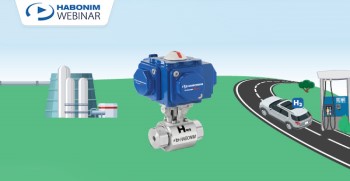Date of the webinar: November 2021.
Hydrogen applications have their own rules when it comes to choosing equipment. H2 molecules are very small, flammable, and lighter than air. Hydrogen properties combined with high pressure, temperature & time can diffuse into metal surfaces, causing cracks that lead to breakage and other equipment damage. Any equipment used for H2 must be specially designed to ensure safety with this highly volatile material.







